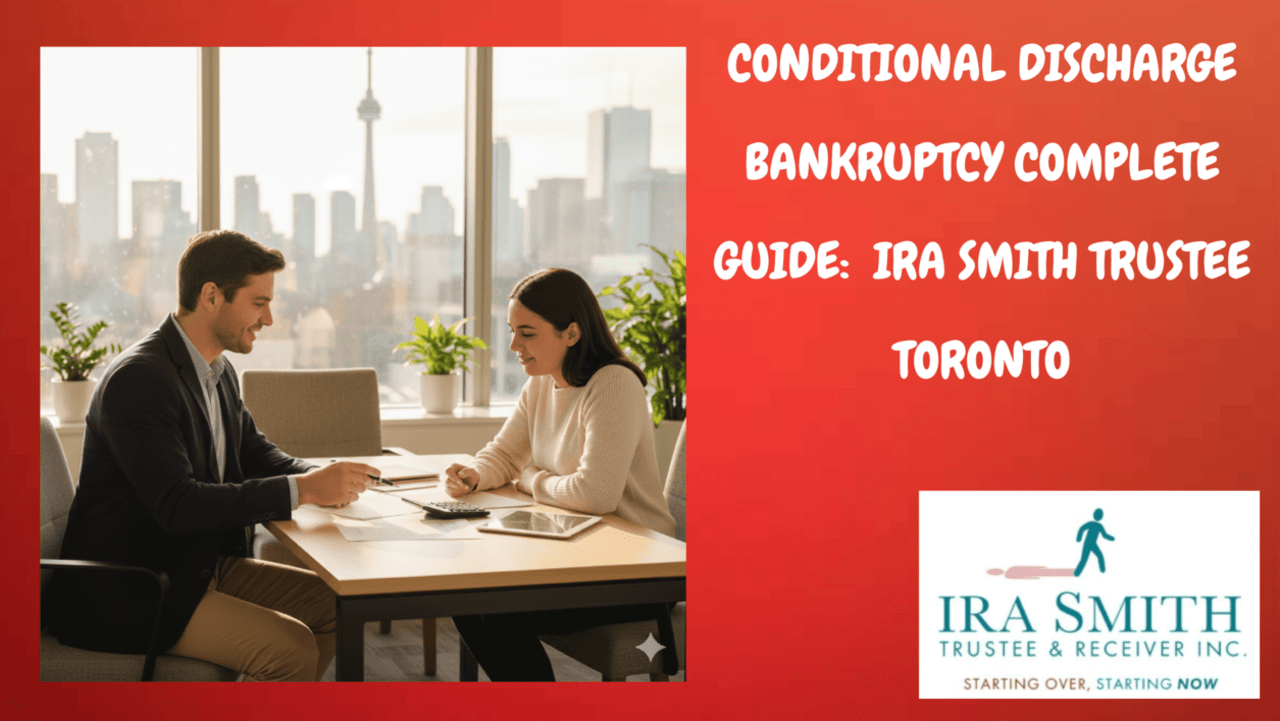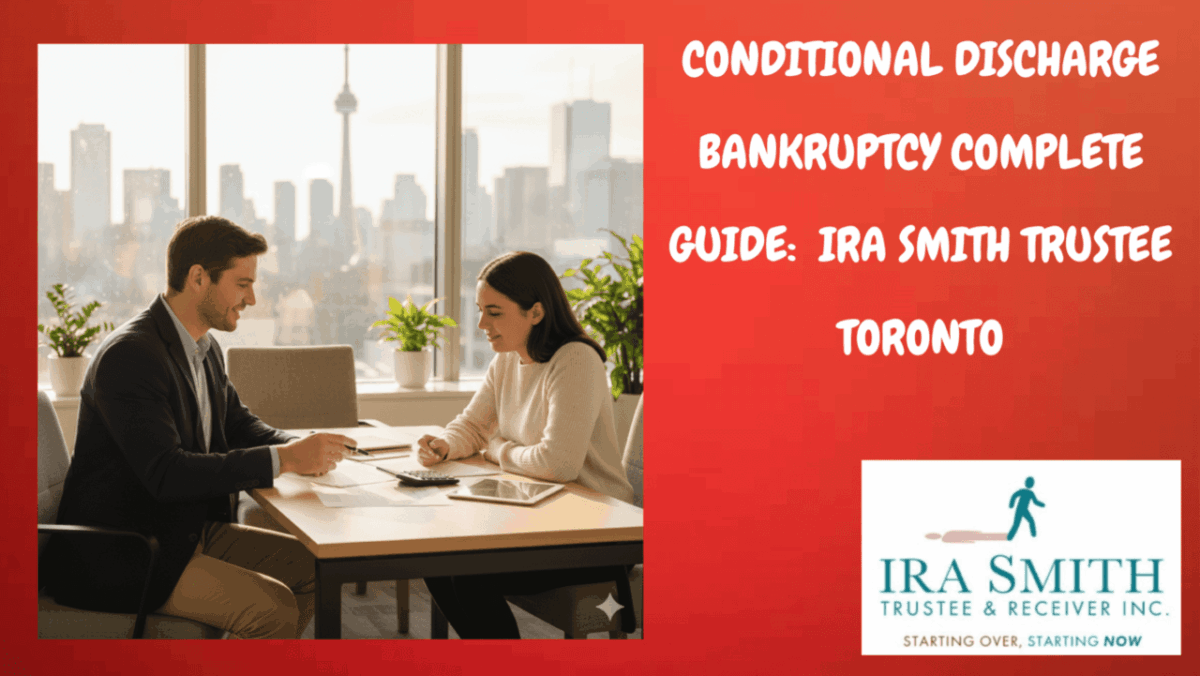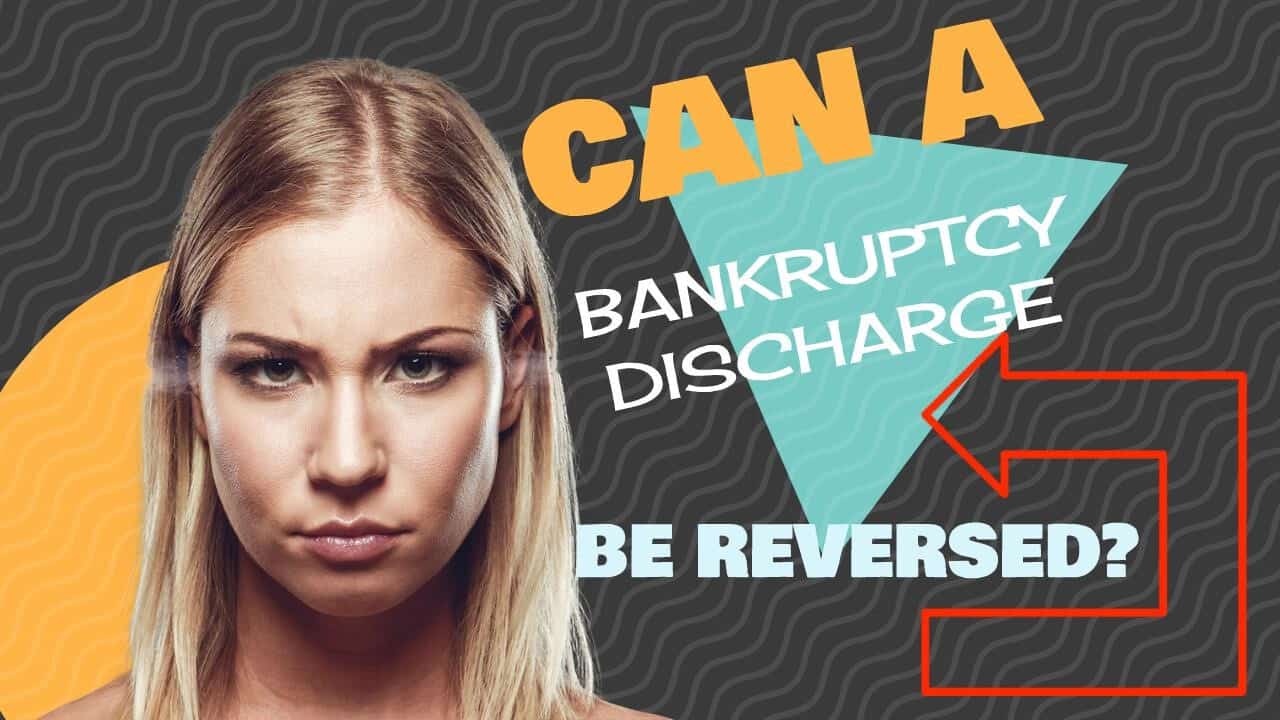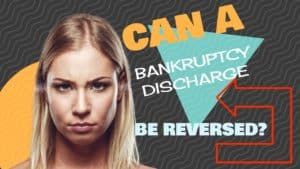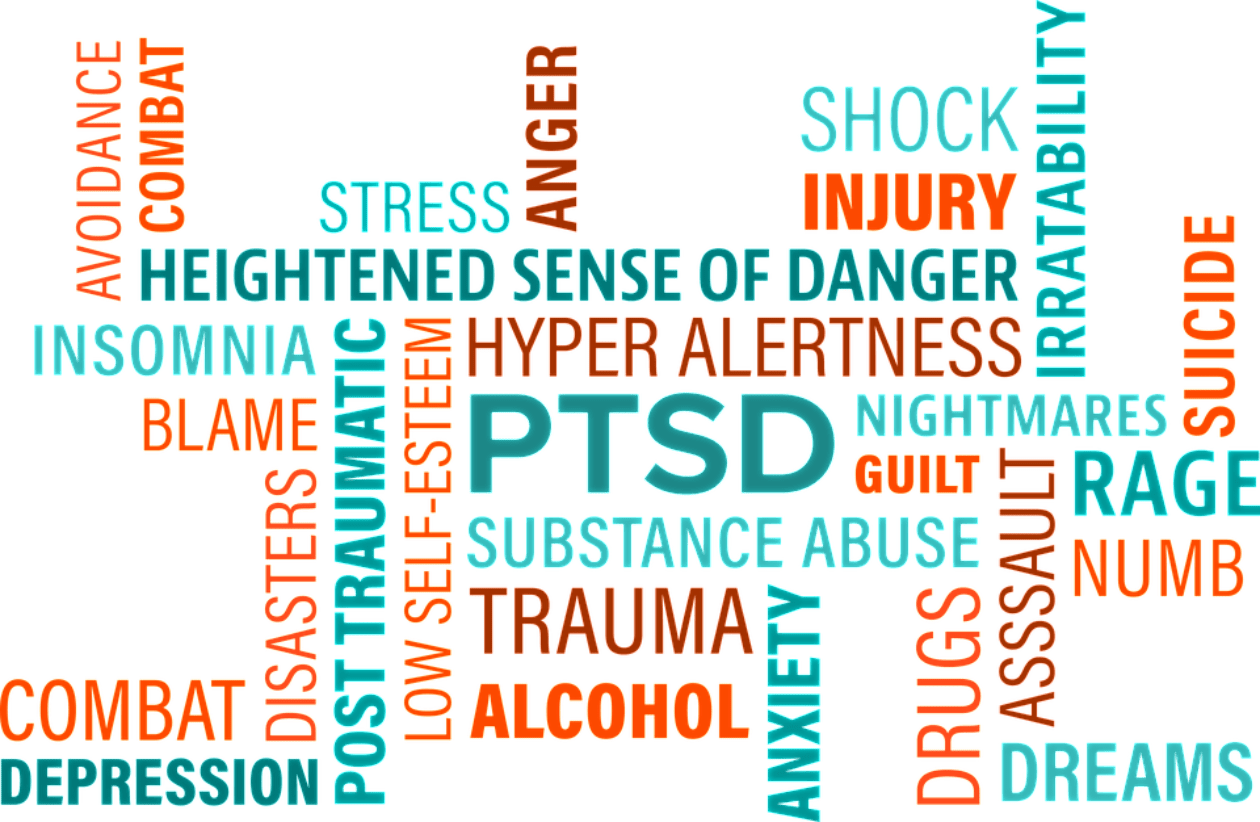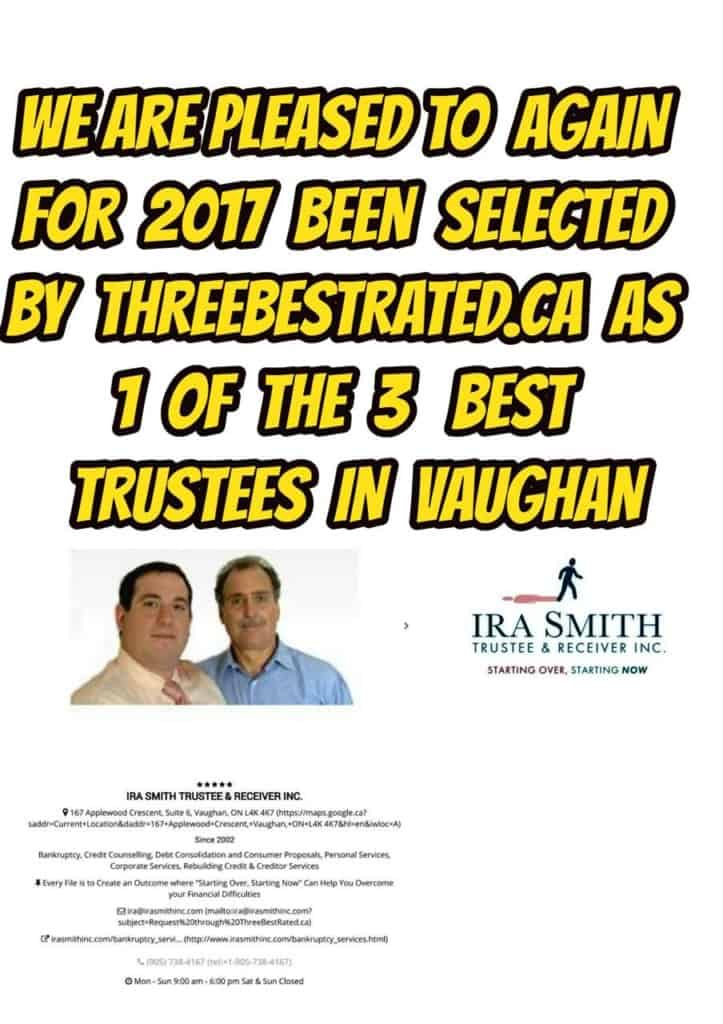As a Licensed Insolvency Trustee at Ira Smith Trustee & Receiver Inc., I’ve guided many people through the bankruptcy process in the Greater Toronto Area. One of the most common questions I hear is: “What happens at my discharge hearing?” Recently, a significant Ontario court decision has shed new light on this crucial aspect of bankruptcy proceedings, particularly regarding conditional discharge orders.
This case is especially relevant when considering my recent blog posts. In my previous blog posts about the Toronto condo market and current issues in the Ontario mortgage default space, I’ve discussed how many people have found themselves in similar predicaments to the woman described in this recent decision.
Filing for bankruptcy may be a viable option for many people who are on the wrong end of a shortfall claim due to a failed real estate investment. Every person thinking about bankruptcy as a way to eliminate hundreds of thousands of dollars of debt must also consider the possibility that they may not get an absolute discharge from bankruptcy. This is what this case that I describe below highlights.
Today, I want to walk you through the detailed case of Re Xianglan Li, 2025 ONSC 5812. It illustrates what can happen when things go wrong in bankruptcy – and what you can learn from it to protect yourself.
Why Not All Discharges Are Absolute: Introducing Conditional Discharge
Before diving into the case details, let’s establish some fundamentals. When you file for bankruptcy in Canada under the Bankruptcy and Insolvency Act (Canada), the ultimate goal is to receive a discharge from bankruptcy – your legal release from most debts. However, not everyone receives an automatic discharge.
There are four types of discharge orders under the Canadian Bankruptcy and Insolvency Act:
- Absolute Discharge – You’re immediately released from your debts that can be discharged with no conditions
- Conditional Discharge – You must fulfill certain conditions (usually payment obligations) before being released from your debts
- Suspended Discharge – Your discharge is delayed for a specific period. A suspended discharge can be combined with conditions that also must be fulfilled, if appropriate. Otherwise, the person receives an absolute discharge after the suspension period expires.
- Refused Discharge – The court denies your discharge entirely (rare and only used in extreme cases)
A conditional discharge typically requires the bankrupt person to pay a certain amount of money to the trustee before being released from bankruptcy. This payment goes toward creditors’ claims and demonstrates a good-faith effort to repay at least some portion of the outstanding debts.
The Real Estate Speculation Case: A Cautionary Tale
The recent Ontario Superior Court decision in Re Xianglan Li provides valuable insights into how courts determine what kind of discharge order to grant, and whether it should be a conditional discharge, what conditions to impose, or should it be a different form of discharge.
The Background Story
Ms. Li’s bankruptcy story began with a failed real estate transaction in Richmond Hill, Ontario. In July 2017, she signed an Agreement of Purchase and Sale (APS) to buy a property for $1,435,607.67 – a significant investment by any measure, but not unusual for a home in the GTA. She paid deposits totalling $179,810.67, including upgrades.
Here’s where things get interesting: Ms. Li signed this agreement while her husband had just purchased another property four months earlier for $955,472.87. The new property she was planning to purchase cost approximately $480,000 more than the one her husband had just bought.
The real problem? The combined total of Ms. Li’s reported taxable income and that of her husband in 2017 was less than $20,000 – yet they were trying to purchase properties for a combined cost of over two million dollars. So either they had a lot of unreported income or they could never afford what they were trying to accomplish in real estate, or both.
When the closing date arrived in November 2018, Ms. Li couldn’t complete the purchase. The developer, Arista Homes, terminated the agreement, kept all deposits, and sued for damages totalling $281,421.39.
In April 2020, before a judgment was issued, Ms. Li filed for bankruptcy. It turns out that Arista was her only creditor in the bankruptcy. That is the Reader’s Digest version of a long, sordid tale.
Why This Matters for Toronto Area Residents
If you’ve been following real estate trends in the Greater Toronto Area, this story might sound familiar. It is a similar story to my prior blogs on the Toronto condo market and current issues in the Ontario mortgage default space.
The combination of rising interest rates, cooling real estate prices, and overextended purchasers has created a perfect storm. Many individuals who signed pre-construction purchase agreements during the hot market now cannot close on their properties.
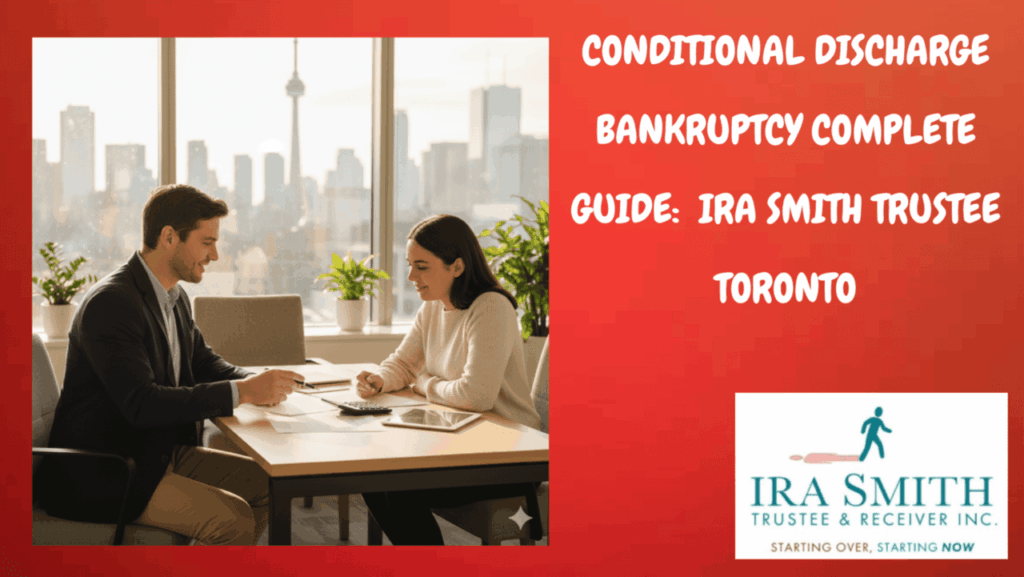
What Happened at the Discharge Hearing Before the Registrar in Bankruptcy?
Ms. Li’s discharge hearing revealed several significant problems that led to a conditional discharge order rather than an absolute discharge.
Section 173(1) Facts: The Court’s Concerns
Under the Bankruptcy and Insolvency Act (Canada) (BIA), Section 173(1) lists specific “facts” that, if proven, prevent the court from granting an absolute discharge. This section of Canada’s bankruptcy legislation lists facts for which discharge may be refused, suspended or granted conditionally. In Ms. Li’s case, the court found three such facts proven:
1. Section 173(1)(a) – Assets Not Equal to 50 Cents on the Dollar
This provision requires the bankrupt person to prove that their financial collapse arose from circumstances they cannot “justly be held responsible” for. Ms. Li couldn’t meet this burden.
The court found that Ms. Li had engaged in conduct similar to what the judge called “rash and hazardous speculation.” She had signed a $1.4 million purchase agreement without:
- Consulting her husband
- Considering how to finance the purchase
- Having a reasonable income to support a mortgage qualification
- Securing any form of financing commitment
As the court noted, she was “impulsive, naive and irresponsible in committing for a home purchase without any financial planning.”
2. Section 173(1)(e) – Rash and Hazardous Speculation
The court determined that Ms. Li’s conduct constituted “rash and hazardous speculation” under the BIA. The judge emphasized that this assessment must be made relative to the person’s financial circumstances.
For someone with Ms. Li’s paltry reported income to commit to purchasing a $1.4 million property was objectively rash and hazardous. Even if the real estate market had cooperated, there was no realistic path to securing mortgage financing with her income level.
3. Section 173(1)(o) – Failure to Perform Duties
Perhaps most damaging to Ms. Li’s case was the court’s finding that she failed to fulfill her duties as a bankrupt person. Under Section 158 of the BIA, bankrupts have various duties, including:
- Deliver all books, records, and documents to the trustee
- Make full disclosure of all property dispositions
- Submit to examinations under oath
- Aid the trustee to the utmost of their power
Ms. Li failed to complete the undertakings from her examination, leaving crucial questions unanswered about:
- Bank account statements from relevant periods
- Details of family loans and their sources
- Contributions to previous mortgage payments
- Disposition of proceeds from other property sales
- Repaying a loan to a family in China
The court emphasized that bankrupts must “actively aid” the trustee, not “remain passive and hope that the financial storm would blow over.”
Conditional Discharge: The Doctrine of Avoiding Judgment Through Bankruptcy
One particularly important principle emerged from this case: courts don’t look favourably on people who use bankruptcy primarily to avoid paying a judgment claim.
The Supreme Court of Canada established in Kozack v. Richter, 1973 CanLII 166 (SCC), that when someone files for bankruptcy mainly to escape a judgment arising from their wrongful conduct, courts should impose meaningful payment conditions if the person can pay.
In Ms. Li’s situation, even though Arista hadn’t obtained a formal judgment before she filed for bankruptcy, it was clear that the lawsuit was the primary reason for her assignment into bankruptcy. The court considered this factor heavily in determining the appropriate conditions.

The Final Conditional Discharge Order: How the Court Decided
After reviewing all the evidence in this case, Associate Justice Ilchenko ordered a conditional discharge requiring Ms. Li to pay 10% of the proven claim, being $28,142.14, within 24 months.
This amounted to roughly 10 cents on the dollar of the total claim of $281,421.39. While this was significantly less than the 20-30% sought by Arista, it was also much more than the $5,000 recommended by the trustee.
The court balanced several competing considerations:
Factors Supporting a Lower Amount:
- Ms. Li had already paid $179,810 in deposits that Arista kept
- She earned a modest income as a bus driver ($64,974 in 2024)
- She had some chronic medical conditions
- She had tried to extend the closing date and complete the purchase
Factors Supporting a Higher Amount:
- The proven Section 173((1) facts show poor judgment
- The need to maintain the integrity of the bankruptcy system
- Her failure to cooperate fully with the trustee
- The public interest in commercial morality
- Her age (51) and continued earning capacity
Conditional Discharge: Key Lessons for Anyone Considering Bankruptcy
This case offers several crucial lessons for anyone in the Greater Toronto Area or elsewhere in Ontario dealing with overwhelming debt:
1. Be Realistic About Real Estate Commitments
If you’re considering purchasing property – especially pre-construction condos or high-value homes – ensure you have:
- Verified mortgage pre-approval from a qualified lender
- Realistic assessment of your income and expenses
- Contingency plans if market conditions change
- Professional advice from mortgage brokers and real estate lawyers
Don’t rely on optimistic assumptions about future property value increases or income growth.
2. Cooperate Fully With Your Trustee
If you do file for bankruptcy, complete cooperation with your Licensed Insolvency Trustee is essential. This means:
- Providing all requested documents promptly and completely
- Answering all questions truthfully and thoroughly
- Attending all required meetings and examinations
- Disclosing all assets, income sources, and property dispositions
- Responding to undertakings and follow-up requests
- Attending the two mandatory bankruptcy and credit counselling sessions with the Licensed Insolvency Trustee under the Insolvency Counselling Program established by the Office of the Superintendent of Bankruptcy Canada
Failure to cooperate can transform what might have been an absolute discharge into a conditional discharge – or even a refused discharge.
3. Understand Your Duties as a Bankrupt
The BIA imposes significant duties on anyone who files for bankruptcy. You’re not just passively waiting for discharge – you have active obligations to:
- Aid the trustee in realizing your assets
- Submit to examinations under oath
- File all required tax returns
- Report material changes in your financial situation
- Attend financial counselling sessions
These aren’t optional suggestions – they’re legal requirements that the court takes very seriously.
4. Consider Consumer Proposals as an Alternative
Many people in situations similar to Ms. Li’s might be better served by filing a consumer proposal rather than bankruptcy. A consumer proposal allows you to:
- Negotiate a settlement with creditors for less than 100% of your debts
- Keep control of your assets
- Avoid some of the restrictions that apply to bankrupts
- Make predictable monthly payments over up to five years
At Ira Smith Trustee & Receiver Inc., we often find that consumer proposals, or for those with debts greater than $250,000, not including any mortgages or lines of credit secured against your personal residence, a Division I Proposal under the BIA, provide better outcomes for clients, particularly those arising from failed real estate transactions.
5. Document Everything
If you’re involved in property transactions that later fail, maintain meticulous records of:
- All agreements and amendments
- Payment receipts and bank statements
- Communications with developers or sellers
- Financial advice you received
- The efforts you made to complete transactions
This documentation becomes crucial if you later need to demonstrate that your financial difficulties arose from circumstances beyond your control.

The Current Real Estate Reality in the GTA
As I discussed in my blog about mortgage default, we’re seeing increasing numbers of people facing similar challenges to Ms. Li’s situation.
The combination of:
- Higher interest rates
- Stricter mortgage qualification rules
- Declining property values
- Economic uncertainty
- Job market volatility
…has created a situation where many pre-construction purchasers simply cannot close on their agreements.
If you signed a pre-construction purchase agreement during the hot market of 2020-2022, you may now be facing:
- Inability to qualify for necessary mortgage financing
- Property values below your purchase price
- Difficulty selling your current home to fund the new purchase
- Developer demands for additional deposits or price increases
These situations require professional guidance from a Licensed Insolvency Trustee who understands both insolvency law and real estate market realities.
Life After Conditional Discharge: Rebuilding Your Financial Future
If you receive a conditional discharge in bankruptcy, here’s what you need to know:
You Remain Bankrupt Until Conditions Are Met
A conditional discharge doesn’t release you from bankruptcy immediately. You remain an undischarged bankrupt with all associated restrictions and obligations until you fulfill the court-ordered conditions.
This means:
- You cannot obtain credit over $1,000 without disclosing your bankruptcy
- You cannot act as a director of a corporation
- You may face professional restrictions depending on your occupation
- You must continue reporting income and expenses to your trustee
Payment Terms Are Usually Flexible
Courts typically give reasonable time periods to fulfill payment conditions – often 12 to 24 months. Section 172(3) of the BIA does allow for modifying a conditional discharge order.
If you face genuine hardship preventing payment, you can apply to the court to vary the terms. However, you must demonstrate that you’ve made reasonable efforts and that circumstances beyond your control prevent compliance. Also, you cannot even apply for such relief until at least 1 year after the date the conditional discharge order was made.
Your Credit Report Is Affected
A conditional discharge appears on your credit report differently from an absolute discharge. The bankruptcy notation expiry time period cannot even begin until you satisfy the conditions and receive your discharge certificate.
This can affect:
- Your ability to obtain credit
- Employment opportunities in the financial sector
- Professional licensing in certain fields
- Your credit score and borrowing costs
You Can Rebuild Afterward
Once you fulfill the conditions and receive your discharge, you can begin rebuilding your financial life. While the bankruptcy remains on your credit report for six to seven years from discharge, many people successfully rebuild credit within two to three years through:
- Secured credit cards
- Small installment loans
- Consistent bill payment history
- Steady employment and income
- Financial counselling and budgeting

conditional discharge
When to Seek Professional Help
If you’re facing financial difficulties related to real estate commitments or mounting debts for any other reason, and are considering a potential bankruptcy, don’t wait until the situation becomes critical.
Warning Signs You Need Help Now
Contact a Licensed Insolvency Trustee immediately if you’re experiencing:
- Inability to make mortgage or rent payments
- Collection calls from creditors or legal proceedings
- Using credit cards or loans to pay basic living expenses
- Considering withdrawing RRSP funds to pay debts
- Losing sleep or experiencing stress-related health problems due to debt
- Contemplating a consumer proposal or bankruptcy
What We Can Do for You
At Ira Smith Trustee & Receiver Inc., we provide comprehensive debt relief services for individuals and businesses throughout the Greater Toronto Area, including:
- Free Initial Consultations – We’ll review your complete financial situation and explain all available options
- Consumer Proposals – We’ll negotiate with creditors to reduce your debt and create affordable payment plans
- Personal Bankruptcy Filings – We’ll guide you through the entire bankruptcy process professionally and compassionately
- Credit Counselling – We’ll help you understand what went wrong and develop strategies to avoid future problems
- Business Restructuring – For entrepreneurs, we offer financial restructuring through commercial proposal services to save your business and the jobs you create
Our team understands the unique challenges facing Greater Toronto Area residents dealing with high housing costs, challenging economic conditions, and complex debt situations.
The Importance of Choosing the Right Trustee
Choosing an experienced, knowledgeable Licensed Insolvency Trustee matters so much. The relationship between the trustee’s recommendations and the court’s final order can significantly impact your outcome.
When selecting a trustee, look for:
- Experience with similar cases – Has the trustee handled situations like yours?
- Clear communication – Do they explain complex legal concepts in understandable terms?
- Comprehensive service – Do they offer alternatives to bankruptcy like consumer proposals?
- Local knowledge – Do they understand the specific challenges in your community?
- Professional reputation – What do other clients and legal professionals say about them, such as in Google reviews

Moving Forward, Your Next Steps
If you’re dealing with overwhelming debt, potential mortgage default, or considering bankruptcy, here’s what to do next:
Step 1: Gather Your Financial Information
Collect documentation, including:
- Recent pay stubs and tax returns
- List of all debts with balances and payment terms
- Monthly expense breakdown
- Asset list with current values
- Mortgage statements and property tax bills
- Any legal documents, like demand letters or court papers
- All of this information can be captured by completing our Debt Relief Worksheet
Step 2: Schedule a Free Consultation
Contact Ira Smith Trustee & Receiver Inc. for a confidential, no-obligation consultation. We offer both video and in-person meetings. We’ll review your situation and explain your options clearly, including:
- Whether bankruptcy is necessary or if alternatives exist
- What type of discharge might you expect
- How to avoid a conditional discharge if possible
- Timeline and costs for each option
- Impact on your family, employment, and future
Step 3: Make an Informed Decision
After understanding all options, you can make the choice that’s right for your situation. We’ll never pressure you – our role is to provide expert advice and support whatever decision you make.
Step 4: Take Action
Once you’ve decided on a path forward, we’ll handle all the legal requirements, court filings, and creditor communications. You’ll have experienced professionals managing every aspect of your case.
Conditional Discharge Conclusion: Learning from Others’ Experiences and Embracing the Path to a Bright Financial Future
The case of Ms. Li’s conditional discharge offers important lessons for anyone struggling with debt in the Greater Toronto Area. While her situation involved failed real estate transactions, the principles apply broadly:
- Be realistic about your financial capacity before making major commitments
- Cooperate fully with professionals trying to help you
- Understand your legal duties and responsibilities
- Seek expert advice early, before problems become crises
- Choose experienced professionals to guide you through difficult processes
A conditional discharge isn’t the end of the world – it’s a manageable step toward financial recovery. However, the best approach is avoiding situations that might lead to bankruptcy in the first place, or choosing alternatives like consumer proposals when appropriate.
At Ira Smith Trustee & Receiver Inc., we’ve helped many individuals and families in the Greater Toronto Area successfully navigate financial difficulties and emerge with a fresh start. Whether you’re facing mortgage default, overwhelming consumer debts, failed business ventures, or other financial challenges, we’re here to help. You can also visit our Google Business Profile to learn more about our services and read client testimonials.
Don’t let financial stress control your life. Contact Ira Smith Trustee & Receiver Inc. today for a free, confidential consultation. Call us at (647) 799-3312 to discuss your options with an experienced Licensed Insolvency Trustee who truly cares about your future, Starting Over Starting Now.
Remember: seeking help isn’t a sign of failure – it’s a smart step toward financial recovery and peace of mind. Let us help you find the right path forward.
The information provided in this blog is intended for educational purposes only. It is not intended to constitute legal, financial, or professional advice. Readers are encouraged to seek professional advice regarding their specific situations. The content should not be relied upon as a substitute for professional guidance or consultation. The author, Ira Smith Trustee & Receiver Inc., and any contributors do not assume any liability for any loss or damage.
Brandon Smith is a Licensed Insolvency Trustee and Senior Vice-President at Ira Smith Trustee & Receiver Inc., serving individuals and businesses throughout the Greater Toronto Area. With years of experience in insolvency cases, including financial restructuring, Brandon helps clients navigate complex financial challenges and find sustainable solutions, Starting Over Starting Now.
